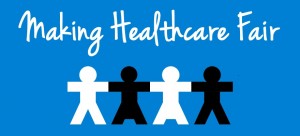AfriGadget is a blog focused on stories of African ingenuity. Through the site, I have discovered innovations that African people have come up with to overcome challenges in their life and country. One product that especially interested me was the Saphonian Blade-less wind turbine, an invention from Tunisia by Saphon Energy, that has proved to be better than others invented by developed countries. Using the Saphonian zero-blade system, the company is working towards meeting Africa’s electricity needs in a clean and affordable way.
Overall, AfriGadget a great site for finding out about what’s happening in the African social entrepreneurial world. It’s inspiring to read about how Africans from all over the continent, young or old, have used their creativity to develop products or ways to benefit themselves and their communities. We don’t normally find such news or inspiration in the business section of a paper or site. Reading this blog might just spark an innovative idea in your mind and motivate you to start an enterprise that contributes a social good like Saphon Energy.






 In order for the PowerTab to work, it needs to communicate with
In order for the PowerTab to work, it needs to communicate with 






